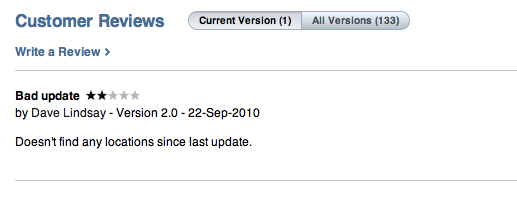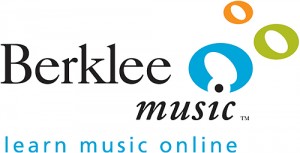by Christopher Sutton | Oct 11, 2010 | Technology
I was a reluctant eBook adopter.
I love books, and devoured them so quickly growing up that my mum had to ration the number I was allowed to buy after I’d blown through the local library’s supply of children’s and teen fiction. I’d get through five or six paperbacks on a family holiday and then beg and plead to be allowed to buy a few more in bookshops we passed.
I grew up in a house full of books, and I remember vividly the moment when I realised what a gift that is. Alone in my parents’ house a couple of years after moving out, I found myself with some time to fill. I made a cup of tea, and thought for a few minutes about how I’d spend the time. I was wishing I’d brought my laptop so I could watch some TV or catch up on emails. Then I looked around, realised I was surrounded by bookcases full of wonderful books I’d never read, all pre-vetted by my dad (the most devout reader I’ve ever encountered) as being worthwhile.
I spent a blissful half hour wandering around the house, pulling out books almost at random, reading the backs, flicking through a few pages, and gradually building up a pile of about ten before I realised I had enough to occupy myself with!
I got stuck into one, brought the rest away with me to read later, and found myself appreciating in an altogether new way just how wonderful it is to be raised by parents who are avid readers.
The eBook quandry
The last 10 years have brought eBooks entirely into the mainstream, and caused a lot of people to pick sides: for or against. It seems like whether you love books or are only an occasional reader, you’ll find your own personal reasons to either adopt the eBook life wholesale, or shun it in favour of your musty paperbacks and the traditional reading experience.
I’m one of those in a third, less frequently mentioned category:
People who have pretty much adopted the eBook model – but feel guilty about it, and feel anxious and conflicted if they examine their decision too closely.
(more…)
by Christopher Sutton | Oct 4, 2010 | Ear Training, Music Theory, Technology
Being an Apple App Store developer is really a mixed bag. While it is streets ahead of other mobile platforms’ app stores in terms of platform consistency (which developers love), the market size, and audience for your apps, there are some deeply frustrating issues as well.
I want to briefly discuss one: the lack of two-way communication with users.
I’ll also look at some particular issues one user had with the RelativePitch app my company developed, around learning relative pitch with or without a harmonic context.
The App Store Review System
Users are free to write reviews of apps they download – and in my experience user reviews make an enormous difference to app sales. The App Store interface shows the most recent reviews of an app prominently, and having a negative review visible there can really impact sales.

A recent 1-star review can strongly influence App Store shoppers
What’s truly frustrating though is that developers have no way to respond to reviews, either publically or privately. We can’t email the users, and we can’t post a reply to their review. Some developers will respond within the app description text, but this isn’t scalable or particularly beneficial.
Sometimes a user will have misunderstood something, or somehow missed out on a large part of the app’s functionality. In a lot of cases this can be useful information: you can improve the app to aid the user’s understanding more in future. In other cases you just have to throw up your hands in the air and wonder what went wrong and whether the user spent even a couple of minutes trying to resolve their issue or looking at the help screens!
Once in a while there will be a review which puts me in a bad mood. Normally this is because they’re flaming the app without real justification – this inevitably affects the impression other potential customers get of the app, despite lacking substance.
And sometimes the reviewer raises interesting points which I disagree with, and I’m simply frustrated not to be able to respond.
Harmonic Context in Interval Training
One such reviewer appeared this week. They were kind enough to review both of our paid apps, leaving a 1-star rating and a strongly worded negative review for each. They raised some interesting points though, which I’d like to respond to here.
I’ve included the whole review below, and then again with my comments in-line.
(more…)
by Christopher Sutton | Sep 29, 2010 | Music Theory
As of this week I am officially a student at Berklee School of Music – and that’s not something I ever expected to be saying!
I’m enrolled in their Music Theory Specialist program, as an online course of study. It’s the first time I’ve done formal, structured online learning, and I’m very interested to see how well the class interaction and live events work. Also whether I can successfully fit it around my day-to-day schedule which recently is particularly busy and unpredictable.

So why am I studying music theory? Well, there are two reasons, both of which I feel a little awkward admitting to. But what better for the inaugural post on a newly launched blog than some embarrassing confessions?
First confession: I didn’t take music as a subject at school, just instrumental lessons. I’ve never taken a theory exam. I have accumulated a lot of theory knowledge over the years (and especially in the last year or so as I’ve been doing more ear training) but I have this suspicion that there are big areas I simply don’t know about; and probably should!
Second confession: It’s to give me confidence. Both in terms of having really solid music theory (which I think is incredibly liberating as a musician, improvisor, or arranger) and for the sake of having a real qualification from a respected institution. However dedicated and enthusiastic an amateur musician you might be, it’s hard not to feel intimidated when talking to ‘real’ musicians – i.e. those who’ve studied music formally to a high level. This course will hopefully be a step towards closing that gap for me.
I’m really excited to get started. Even though it’s nothing like auditioning and then being an in-person student at Berklee College, I’m proud to be attending in some sense. Based on the syllabus I’m hoping to find my first course, Music Theory 101, quite straight-forward, but I’m really not sure.
To put myself under a bit more pressure and get another chip off my shoulder, I’ve also registered to take my Grade 5 Theory exam in November: the standard exam that all serious music students take at school in the U.K., which I somehow managed to weasel my way out of! Again, I’m hoping the material won’t throw me for too much of a loop, but you never know until you dive in.
I’ll be posting a bit here about my experiences studying music online and any awkward theory shenanigans I encounter along the way.
If you’ve studied a lot of music theory, or have experience with online learning and have tips to share – drop me a line!



 My name's Christopher Sutton and this is my personal blog. You can learn more about me
My name's Christopher Sutton and this is my personal blog. You can learn more about me